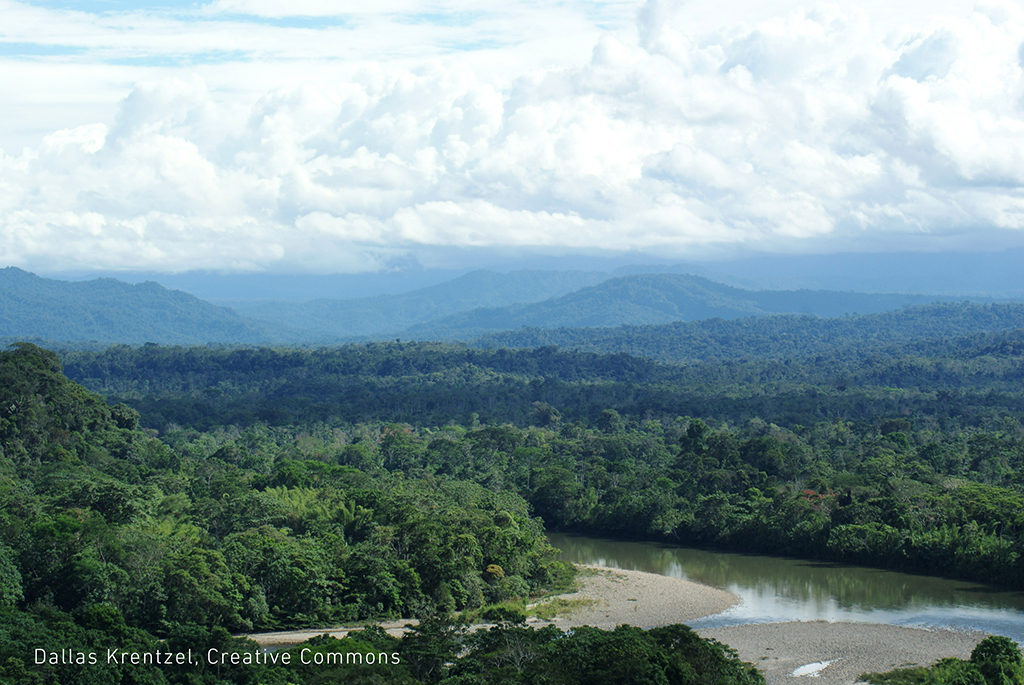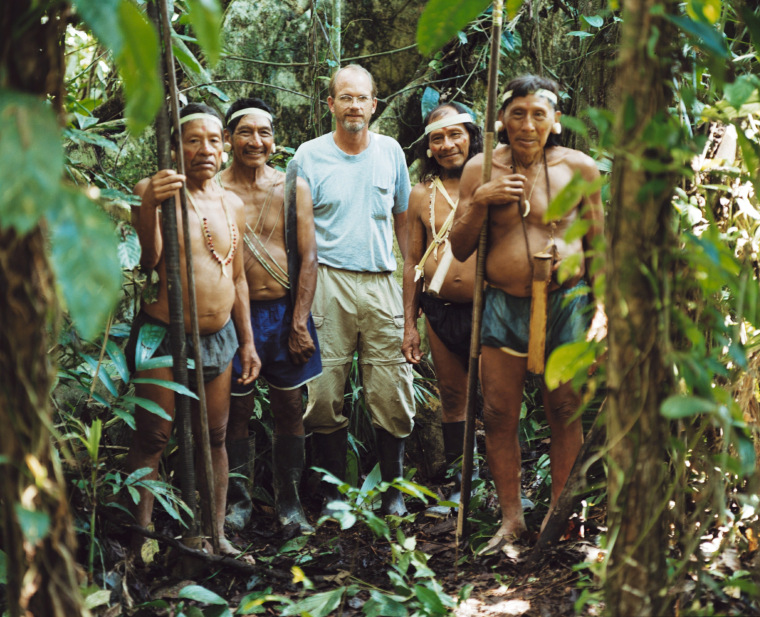Thankful for fellow missions pioneer, Steve Saint, lending his voice in today’s guest post!
My aptitude is in business. My education is in finance. My heart is in missions. Growing up in three cultures, I’m afraid I’m not typical of any one society but I appreciate what is best about many. I love so many facets of missions: It is international. It’s cross cultural. It often involves doing new things in new places, new ways.
Let me explain how I got involved in missions. I was born into missions. My parents lived on the edge of the vast Amazon Rain Forest in the little country of Ecuador. After my Dad, Nate, and four of his friends were speared to death by Amazon warriors, my aunt went to live with those same people and I joined her when I was only about nine. I have had relationship with them for over half a century since they began to emerge from the “stone age”.
I know how to make poison for darts and I know how to hunt with a blowgun. But I have also lived in the Sub-Sahara region of Africa, and in the Andes Mountains. I can communicate in four languages (I really hope I can learn Portuguese as #5) and feel comfortable in numerous cultures.
But, I also have experienced missions from the receiver’s point of view. I know the excitement of hearing the mission plane coming to whisk me in just minutes over dense jungle that would take grueling days on muddy trails. I have felt the comfort of knowing that there was a mission hospital just down the street when my appendix was about to rupture. I watched as Jesus’ life and message were shown on a wind whipped screen in the Haj city of Timbuctu for the first time ever.
More importantly, I grew up loving, respecting, depending on and identifying with a people group receiving the Gospel for the first time. I have felt their deep appreciation for missions done right but I have also felt the pain and disenfranchisement of missions inadvertently done wrong.
I feel a huge responsibility to let you know that what we North Americans do in missions often looks and feels very different to the people to whom we are taking Christ’s message.
What about balance? I admit that much of the information I am giving you here deals with missions mistakes. It is not balanced with “ata-boys”. Why? Because the missions world in North America is full of good news of wonderful results of our missionary efforts. The impression we have been getting is very biased in favor of perpetuating what we have already been doing. I am attempting to give you access to good, verified information that will help balance the standard ‘sender’s’ view of missions with some ‘receiver’s’ point of view and a look at our Bible mandate.
I was recently reading an old missionary biography, and as the author shared some of their mistakes on the field, I felt deeply convicted of the mistakes I have made along the way. I realize I often gloss over my own mistakes, as I point out the mistakes others have made. I know what I am preaching applies to me too.
If some of the material in the Missions Dilemma makes you feel like you have failed, or if something I say makes you want to give up, please don’t. That is not the intent of the video series, ‘The Great Omission’ or this workbook. Cross-cultural missions is a complex undertaking with a thousand ways to fail and a million mistakes just waiting to be committed by all of us. Let’s learn from our past mistakes, and move ahead to do a better job in God’s future assignments.
Our ‘Missions Dilemma’ is deciding how we are going to carry out our great commission from Christ from here on out. I urge you to examine how you see missions, how you support missions and how you do missions. I will too!
You might also enjoy:




